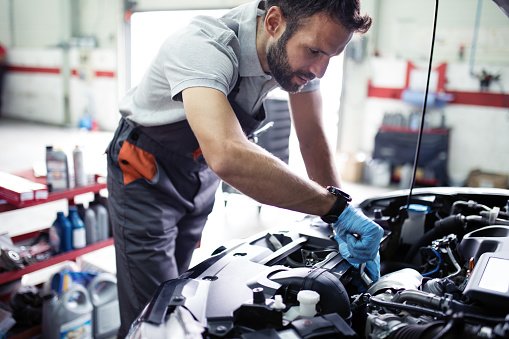Words by Louis Trottier
Most modern vehicles are considered to be superior to their predecessors in just about every way, which has allowed manufacturers to adopt extended maintenance intervals. Unfortunately, this creates a situation where owners think their vehicles are invincible and do their very best to avoid the major services.
Let me tell you about a fellow I met 15 years ago when I first started repairing his car. Let’s call him Bob. The control he exercised over his car maintenance really struck me as special. Bob never misses an oil change; in fact he comes in early for every one of them.
At every visit, we complete something from his maintenance schedule before it’s due. He completely controls what we do and brings a folder full of past invoices with him every time, so he can be certain that we don’t miss anything. In 15 years, Bob has never been stuck at the side of the road for anything more than a flat tire.
On the other end of the spectrum, we have Phil. On average, Bob’s yearly car expenses are half of Phil’s. Phil is a busy guy with a stressful job and he works lots of hours. He is rarely on time for oil changes, and when he does come in the vehicle always has a maintenance light on. He never has time to do the other stuff, so we just complete his oil change and send him on his way.
Unfortunately, there have been some “unexpected” repairs like the brakes that always seem to wear out prematurely—usually to the point of metal-to-metal contact, ruining the brake rotors. Then there was the time his low-oil light came on but he didn’t pay attention to it and kept driving. Well, he was right beside the dealership when he finally heard this strange noise and the car just died. Turns out the car was out of warranty when the dealer told him that the engine had expired, so he decided to buy a brand-new car. He essentially traded that car in for one-tenth of its value.
These are obviously two extreme customers, but where are you in the mix? These days, consumers are holding onto their hard-earned cash more than ever and are removing all the frills from their lives. Car maintenance is certainly not exempt from household budgetary cuts, but how much do you cut?
I’ve been in the auto industry for 20 years now, and my experience has given me the ability to make certain observations about long-term customers and their spending habits. Who spends less money: the person who regularly maintains their vehicle or the person who just fixes it when it breaks down? I think the answer is obvious, but what am I to do?
Just remember the old saying, “A stitch in time saves nine,” which in auto-speak means, “Pay me now or pay me more later.”
Louis Trottier has been an automotive technician for over 20 years, specializing in import vehicles. He is the owner of All About Imports in Mississauga. www.allaboutimports.com.
